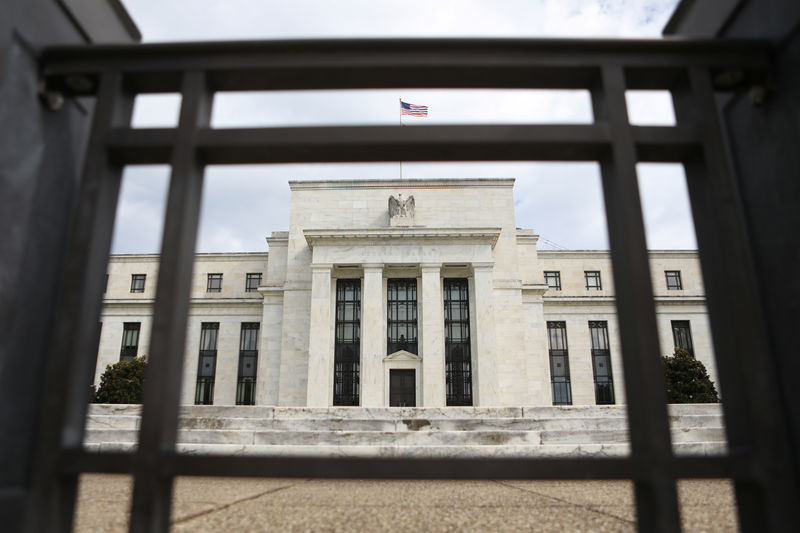(Bloomberg) -- The biggest U.S. banks face stricter oversight in the wake of this year’s stress tests, after the Federal Reserve added new rules that could limit dividends and stock buybacks in response to the Covid-19 pandemic.
While the industry fared well in the central bank’s annual review, policy makers said Thursday they would require firms to re-submit capital plans later this year, a step they’ve never taken before that again raises the possibility of smaller shareholder payouts.
“Banks will be on a much shorter leash going forward,” Adam Crisafulli, who left JPMorgan Chase (NYSE:JPM) & Co. last year to found Vital Knowledge Media, wrote in a note. “The industry will essentially be forced to resubmit their capital plans later this year and there will be updates conducted quarterly by the Fed to determine if adjustments are needed.”
Bank shares declined in New York, with Goldman Sachs Group Inc (NYSE:GS). down 3.8% and JPMorgan off 3.3%. Wells Fargo (NYSE:WFC) & Co., whose recent earnings slide puts it most squarely in the Fed’s crosshairs for payout cuts, fell 4.1%.
The Fed said late Thursday it was capping dividends at second-quarter levels and would limit future payouts based on a formula linked to recent earnings. Banks can’t increase dividends or end a buyback freeze through at least the third quarter.
“Investor concerns around dividend sustainability are likely to persist,” Richard Ramsden, an analyst at Goldman Sachs, said in a note. “Results were in line with expectations, but re-submission creates near-term uncertainty.”
The Fed didn’t say when new capital plans would be required or how they would be judged. Some analysts said the requirement was akin to an entirely new stress test.
“The Fed is reasserting itself in the capital-distribution process after having become more hands-off in recent years,” said Adam Gilbert, regulatory leader of the financial-services advisory practice at PricewaterhouseCoopers. “The new regime was going to allow the banks to do their own decisions on capital, but now we have Covid-19, and the Fed is back.”
Goldman’s Ramsden estimated that Wells Fargo, Capital One Financial Corp (NYSE:COF). and Discover Financial Services (NYSE:DFS) would be the most likely to cut dividends under the Fed’s new rule. But if the central bank continues its restrictions beyond the third quarter, more dividends would be at risk as income levels drop.
The Fed added a new “sensitivity analysis” to the review that sought to capture how well firms are prepared to handle financial pressure caused by the pandemic. Those results were released only in aggregate form, showing how all the banks being tested would fare under more severe scenarios.
Policy makers considered three potential scenarios: a quick V-shaped recovery, a slower U-shaped bounce-back and a worst-case W-shaped scenario, which assumes a second wave of coronavirus containment measures. In that review, industry capital levels are expected to slump 4.3 percentage points.
Brainard Dissents
Given the significant declines in capital, Fed Governor Lael Brainard said it was a mistake to let banks keep paying dividends. She said there was a “substantial likelihood” that banks will need larger capital buffers to absorb future losses.
Under the new rule, a bank’s dividend can’t exceed average quarterly earnings for the previous four quarters. That new emphasis on earnings power could be a problem for Wells Fargo, where profits slumped 89% in the first quarter. Unlike many of its rivals, Wells Fargo doesn’t have a sizable trading operation benefiting from market volatility.
Goldman Sachs and Morgan Stanley (NYSE:MS) fared the worst among U.S.-based banks in the regular portion of the stress tests, with their capital levels declining 6.4 and 5.5 percentage points, respectively, under a hypothetical economic crisis devised by the Fed.
Both firms were expected to do worse than other banks because their businesses are more reliant on capital markets, which take a heavier beating in the regulator’s crisis scenario.
The Fed previously asked banks to refrain from making announcements on buybacks and dividends until Monday.
